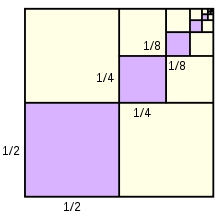Geometric progression members
We get three consecutive GP members if we subtract the same number from 33, 45, and 63. Determine this GP and calculate its fifth member.
Final Answer:

Tips for related online calculators
Are you looking for help with calculating roots of a quadratic equation?
Do you have a linear equation or system of equations and are looking for its solution? Or do you have a quadratic equation?
Do you have a linear equation or system of equations and are looking for its solution? Or do you have a quadratic equation?
You need to know the following knowledge to solve this word math problem:
algebraGrade of the word problem
Related math problems and questions:
- Sequences AP + GP
 The three numbers that make up the arithmetic sequence have the sum of 30. If we subtract from the first 5, the second 4, and keep the third, we get the geometric series. Find AP and GP members.
The three numbers that make up the arithmetic sequence have the sum of 30. If we subtract from the first 5, the second 4, and keep the third, we get the geometric series. Find AP and GP members. - Natural number fraction
 Find a natural number about which: if we subtract 2 from this number and divide the result by three, we get a fraction less than 1
Find a natural number about which: if we subtract 2 from this number and divide the result by three, we get a fraction less than 1 - Fifth member
 Determine the fifth member of the arithmetic progression if the sum of the second and fifth members equals 73 and the difference d = 7.
Determine the fifth member of the arithmetic progression if the sum of the second and fifth members equals 73 and the difference d = 7. - Unknown number x
 If I multiply the unknown number by 4 and subtract 8.4 from the result, I get the same number as if I multiply the unknown number by 3 and add 15.1 to the result. Determine the unknown number. Write the result as a decimal.
If I multiply the unknown number by 4 and subtract 8.4 from the result, I get the same number as if I multiply the unknown number by 3 and add 15.1 to the result. Determine the unknown number. Write the result as a decimal. - The block
 The block, the edges formed by three consecutive GP members, has a surface area of 112 cm². The sum of the edges that pass through one vertex is 14 cm. Calculate the volume of this block.
The block, the edges formed by three consecutive GP members, has a surface area of 112 cm². The sum of the edges that pass through one vertex is 14 cm. Calculate the volume of this block. - GP - edge lengths
 The block edge lengths are made up of three consecutive GP members. The sum of the lengths of all edges is 84 cm, and the volume block is 64 cm³. Determine the surface of the block.
The block edge lengths are made up of three consecutive GP members. The sum of the lengths of all edges is 84 cm, and the volume block is 64 cm³. Determine the surface of the block. - Geometric Sequence Adding Number
 If we add the same number x to the numbers -1,3,15,51, we get the first four members of the geometric sequence. Calculate the number x and the first four members of the geometric sequence.
If we add the same number x to the numbers -1,3,15,51, we get the first four members of the geometric sequence. Calculate the number x and the first four members of the geometric sequence.
